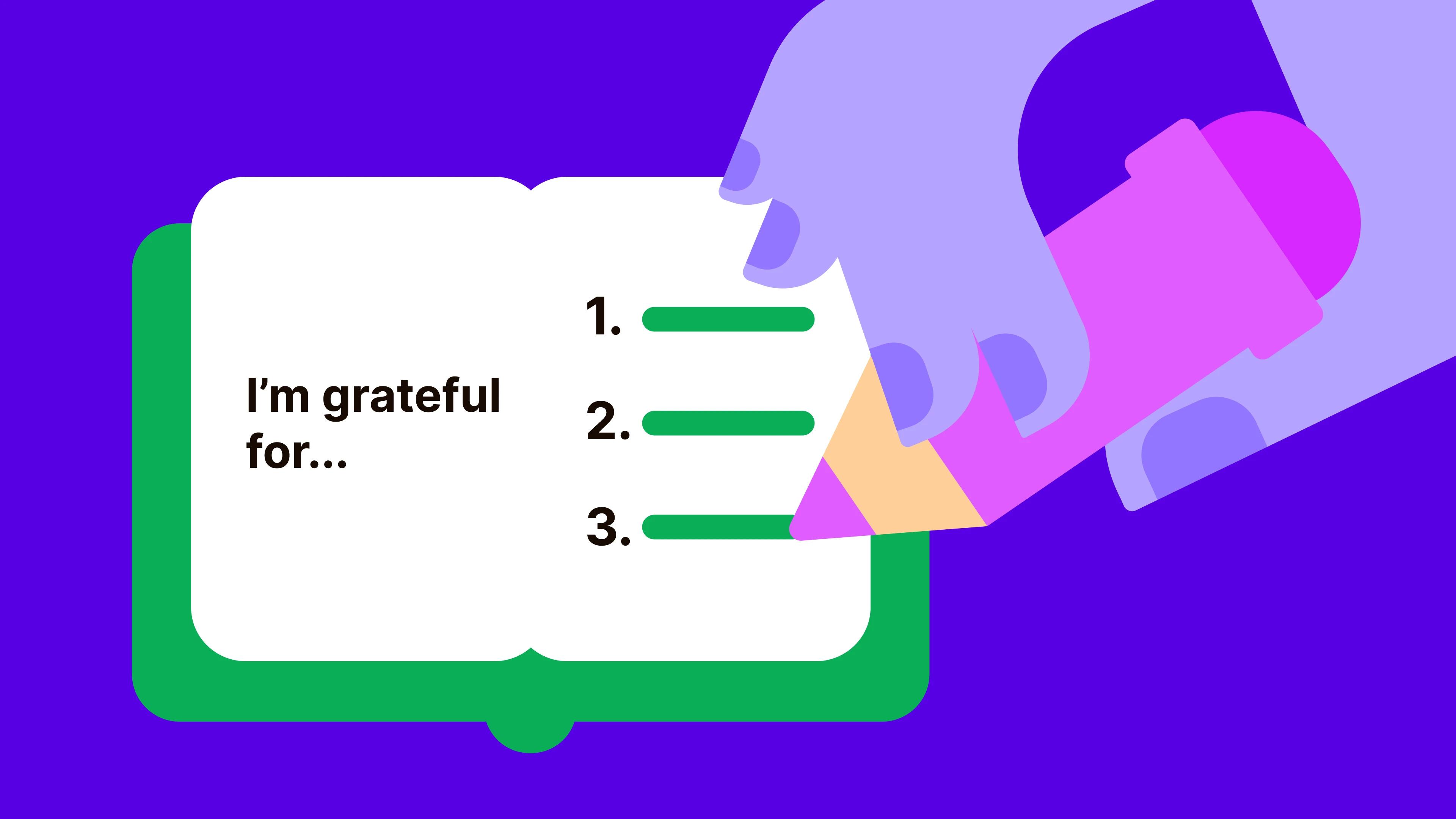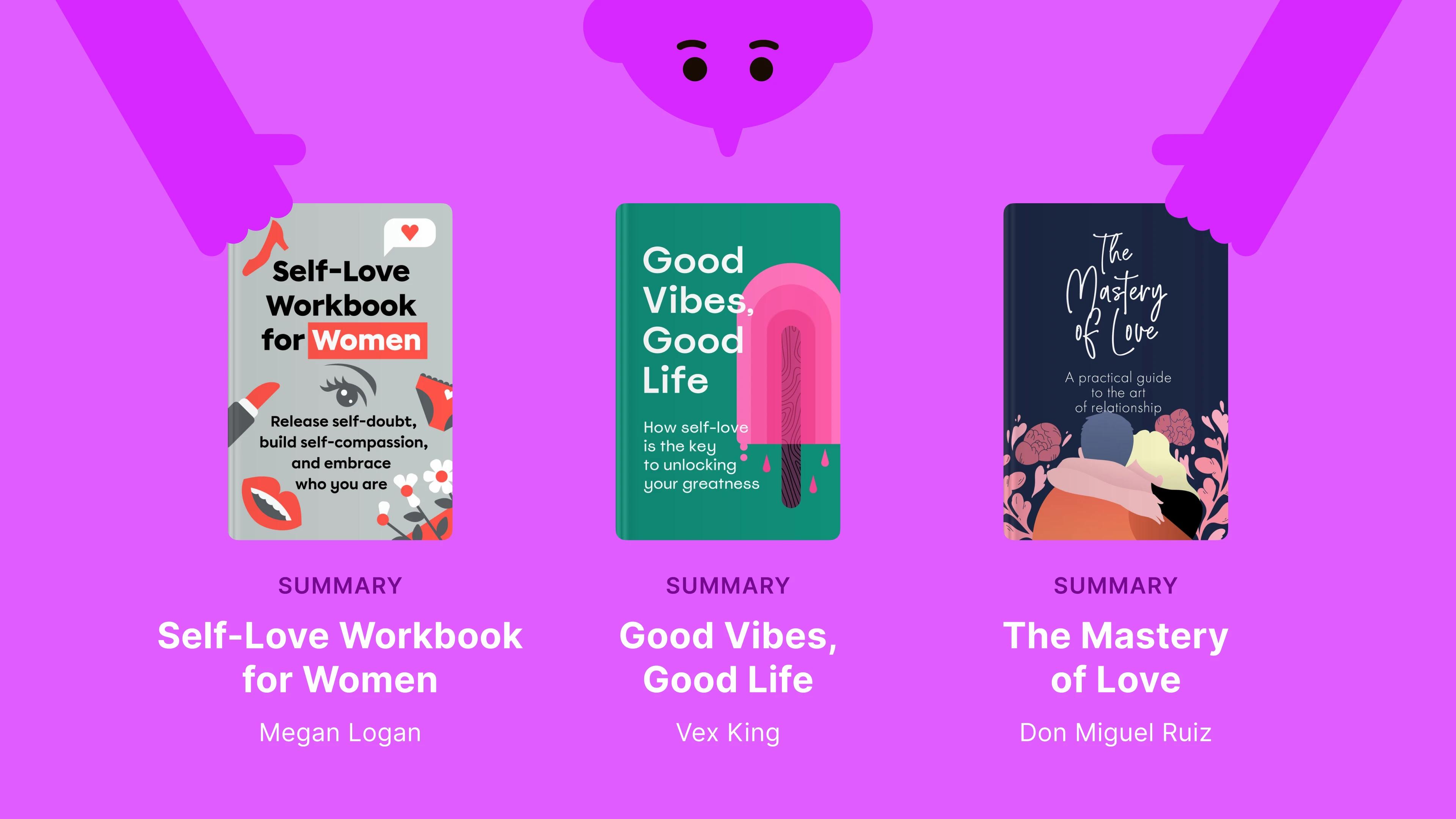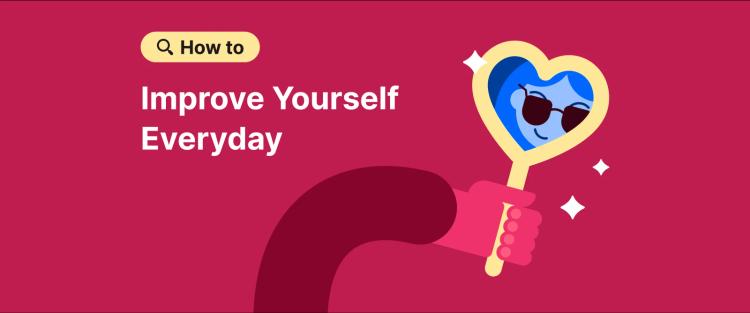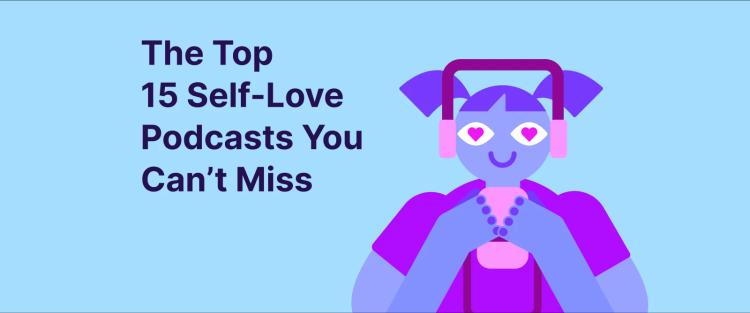Why do you always apologize for just existing?
Perhaps, you're one of the people who say "sorry" for every single thing: taking up space, asking for things, or saying no when someone wants your time. You put everyone else first until there's nothing left, then beat yourself up for feeling resentful about it.
How to love yourself starts with noticing that a pattern exists. Your lack of self-love isn't a personality flaw. Low self-esteem comes from somewhere: childhood, past relationships, or insecurities that built up over the years. About 85% of Americans list mental health as a major concern. Roughly 33% struggle with low self-esteem at some point, and 79% of young women hate their appearance. Self-doubt is common, but it still affects your life severely.
Learning to set boundaries and practice self-compassion helps. Maybe this is the first time you're considering self-love as something you build instead of something you should already have. Validation from yourself matters more than chasing it from everyone else.
However, most self-love advice doesn't stick when you try using it. With Headway, you can get 15-minute book summaries containing actual frameworks (how to build confidence or overcome self-criticism). Read or listen to one during lunch, then try using it that same day.
📘 Download Headway and pick whatever book fits where you're stuck right now!
Quick answer: How to love yourself
Ask what you'd tell a friend who screwed up, then say it to yourself. Self-love means you back yourself up instead of piling on. Treat yourself less like the problem. Your well-being gets better when the voice in your head stops being so vicious.
Write a list of things you're done tolerating. It can be anything: people who drain you, spending time on relationships that make you feel bad, or jobs wrecking your mental health. Saying no is self-love, not selfishness.
Keep a notebook. Write three things daily that didn't go wrong. Things like completing a task or not yelling at someone count. A loving relationship with yourself doesn't start with grand revelations — just noticing you're not worthless.

Three common misconceptions about self-love
Firstly, the lack of self-love can harm us and our relationships, and its meaning is often misunderstood.
"Self-love is selfish" is one of the common myths. In reality, self-love is about taking care of yourself so you can better support others, as Megan Logan explains in her book.
Another harmful belief is that self-love means "always feeling happy" or confident. However, Vex King clarifies that true self-love involves accepting all your emotions, not just the positive ones.
Ultimately, people often misconstrue self-love as having no boundaries or striving for perfection. In contrast, Don Miguel Ruiz emphasizes the importance of setting boundaries to protect your emotional well-being.
Now that we've recognized the basic misconceptions, let us dive deeper and explore 7 tips to help you develop lasting self-love habits.
Seven practical steps to learn self-love in 2026
These are the practical steps you can take to start learning how to love yourself. You will learn how to take better care of yourself, understand how to build self-acceptance and self-respect, and even learn simple techniques for removing negative thoughts. These step-by-step tips are backed by research and insights and can change your life for the better.

1. Embrace self-compassion
As mentioned earlier, self-compassion is about treating yourself with the same kindness you would offer a close friend. According to self-compassion researcher Dr. Kristin Neff, practicing self-compassion involves three key components: self-kindness, recognizing our shared humanity (understanding that you're not alone in your struggles), and mindfulness (being aware of your emotions without judgment).
When you make a mistake or feel down, ask yourself, "What would I say to a friend in this situation?" and then offer yourself the same support.
📘 Get Headway when low self-esteem comes back, and you can't remember what helped last time.
2. Mindfulness practices for self-love
Mindfulness is a powerful tool for cultivating self-love and self-compassion. Consider the RAIN technique, for example. Introduced by psychologist Tara Brach in 2013, it stands for Recognize, Allow, Investigate, and Nurture. RAIN helps process difficult emotions with self-compassion. Dr. Brach used this technique to manage her own anxiety before a public talk, allowing her to stay calm and present.
Loving-kindness meditation, in particular, involves silently repeating phrases of goodwill, such as "May I be happy," "May I be healthy," and "May I be safe." This simple practice can help foster positive feelings towards yourself.
3. Building positive self-talk and affirmations
Negative self-talk is one of the biggest barriers to self-love. We often tell ourselves things we'd never say to others, like "I'm not good enough" or "I'll never succeed." Replacing negative thinking with positive affirmations can help.
For example, you can start with simple, empowering affirmations, such as "I am worthy of love and happiness" or "I am enough just as I am." The more you practice, the more these affirmations will become a natural part of your mindset.
4. Developing healthy habits
Building healthy habits is crucial for self-love as a permanent quality. In 'Self-Love Workbook for Women,' Megan Logan emphasizes the importance of creating habits that nurture your mental and physical well-being. Whether setting aside time for self-care, eating nutritious food, or exercising regularly, these small actions can have a significant impact.

A key strategy for habit formation is to start small. Focus on one or two habits at a time, and celebrate your progress as you go.
5. Practicing forgiveness and letting go
Holding onto guilt, shame, or past mistakes can prevent us from fully loving ourselves. Practicing self-forgiveness is essential to letting go of these negative feelings. In 'The Mastery of Love,' Don Miguel Ruiz teaches that forgiveness is not about tolerating bad behavior but about freeing yourself from the emotional weight of resentment and self-judgment.
One practical way to practice forgiveness is to write a letter to yourself or someone else. Expressing your feelings means the need to hold onto the pain.
📘 Try Headway for self-compassion practices that stick through bad days instead of disappearing.
6. Setting boundaries and saying no
Setting boundaries is a key aspect of self-love. By saying "no" to things that drain your energy or make you feel uncomfortable, you create space for activities and people that bring positivity into your life. Vex King's 'Good Vibes, Good Life' emphasizes the importance of protecting your energy and surrounding yourself with uplifting influences.
If you struggle with setting boundaries, start by practicing small "no's" and gradually building your confidence in prioritizing your own needs.
Question: How does "setting boundaries" work with "leaving the comfort zone"?
It is worth noting that many coaches encourage you to "leave your comfort zone," and you might wonder how that fits with the advice to "say 'no' to things that make you feel uncomfortable," as mentioned above.
The key difference is distinguishing between discomfort that drains you and discomfort that promotes growth. Avoiding situations that harm your energy or well-being is an act of self-care, while embracing challenges that push you toward your goals is essential for personal development.
So, setting boundaries to protect your mental and emotional health works well with stepping outside your comfort zone when it involves taking on opportunities that foster positive change.
7. Gratitude practices and celebrating small wins
Don't forget to celebrate each of your small wins. Gratitude is a vital practice for cultivating self-love. By focusing on the things you're thankful for, you set your mindset towards positivity and appreciation.

What does "practicing gratitude" mean practically? Try keeping a gratitude journal where you write down three things you're grateful for each day.
Finally, don't forget to celebrate your small wins. Recognizing your progress, no matter how small, is a great way to practice self-love and build self-confidence.
How does it work in life?
Building on these practical steps, let's explore how self-love manifests in life, as exemplified by Oprah Winfrey, who embodies self-care and compassion for others. She faced a rough childhood filled with poverty and abuse, which taught her a lot about resilience.
Oprah Winfrey's struggles pushed her to seek therapy and practice self-care. Interestingly, by dealing with her own issues and growing in self-love, she was able to love others. Focusing on self-care has shaped her life and helped her empower millions.
Another example of self-love is the famous Ukrainian philosopher and author of 'The Garden of Divine Songs,' Hryhoriy Skovoroda. He emphasized that, like a garden needs care to grow, our souls need care. Skovoroda inspires us to reflect on who we are, find our true passions (what we are naturally good at), and practice self-love for our wellness. He lived in the 18th century, but his ideas still inspire us to nurture our inner selves — a key to happiness.
Look how Megan Logan, author of 'Self-Love Workbook for Women,' describes herself in “questions and answers”:
“A paradox! As an introvert, I tend to need lots of alone time to recharge. I am analytical and enjoy pondering deep philosophical ideas. Yet, I delight in spontaneity, humor, and have a child-like wonder of the world. Others describe me as empathic, easy to talk to, and ‘real’. I have a unique ability to transform negative events into healing and growth. My love for music and family, animals, being in nature, and the simpler things in life has helped me to find balance and allowed me to practice 20+ years as a therapist.”— Megan Logan
How reading helps cultivate self-love
Aside from "music, family, and animals," as Megan Logan mentions, let us pay attention to reading as one of the greatest sources for nurturing self-love.
Reading can become a major tool for better understanding self-love and cultivating it in your life. Consider the following three books that can help you see yourself in new ways, gain insights from trusted experts, and develop your own strategies for self-care:
Megan Logan's 'Self-Love Workbook for Women' is a practical guide with exercises and prompts designed to help you build self-compassion, develop self-awareness, and create lasting habits of self-love.
2 In 'Good Vibes, Good Life,' Vex King shares personal stories and advice on cultivating positivity, setting boundaries, and practicing self-care. His approach focuses on raising your vibration, which in turn helps you feel better about yourself and attract positive experiences.
3 The Mastery of Love' by Don Miguel Ruiz delves into the emotional wounds we carry from past relationships and experiences. By understanding and healing these wounds, you can release self-limiting beliefs and learn to love yourself fully.

Addressing common challenges in self-love
Many people struggle with self-love due to past trauma, negative self-talk, or constant comparison to others. Here's how you can overcome some of the most common obstacles:
Comparing yourself to others. Social media and societal expectations can make it hard to avoid comparison. The key is to focus on your unique journey and celebrate your progress rather than compare it to someone else's highlight reel.
Feeling unworthy. If you constantly feel unworthy of love or success, it's essential to challenge these beliefs with positive affirmations and mindfulness practices. Remember, self-worth is not tied to external achievements but comes from within.
Struggling to forgive yourself. If you're holding onto guilt or shame from the past, practicing self-forgiveness is essential. Use the methods mentioned earlier, such as journaling or meditation, to release these negative emotions.
📘 Try Headway for tools on loving yourself without the toxic positivity that makes you feel worse.
Three simple steps to try
Starting your self-love journey is easier than you think. Here are three steps you can take immediately:
Daily affirmations. Choose one or two affirmations and repeat them every morning.
Journaling prompts. Reflect on what you're grateful for, what you love about yourself, and what small victories you've achieved.
Guided meditation. Set aside time for a loving-kindness meditation or mindfulness practice.
Start your path to self-love now with Headway!
How to love yourself requires self-compassion when you screw up, setting boundaries with people who exhaust you, and celebrating things that went okay. Then your mental health crashes, and you forget all of it.
You'd google advice for a loved one having a breakdown. Do that for yourself. Headway has 15-minute summaries of books like 'Self-Love Workbook for Women' and 'The Mastery of Love.' Read one when you're spiraling. Get what you need without reading 300 pages you can't focus on anyway. Self-love isn't one perfect insight — it's remembering what helps when you need it.
📘Download Headway and keep these tools accessible when things fall apart!

FAQs: how to love yourself
How do I start loving myself?
Ask what you'd tell a friend who screwed up, then say that to yourself. Write down one boundary you actually need and try enforcing it once this week. Keep a notebook where you write three things daily that went okay about yourself or your day. Self-love takes repetitive practice before your brain quits attacking you every time something goes wrong.
Why do I struggle to love myself?
Childhood criticism that never stopped echoing. Relationships where you learned your needs were inconvenient. Your brain figured out that hating yourself first softens the blow when others reject you. Low self-esteem built up over years of prioritizing everyone else while ignoring yourself completely. Past trauma doesn't just disappear because you understand it logically. Your body still remembers feeling unwanted.
Can I be alone and happy at the same time?
You can, but being alone with someone you despise is miserable. Self-love changes solitude from punishment into preference sometimes. You quit needing other people's approval to feel acceptable. Liking your own company makes being alone bearable instead of something you do until the next relationship rescues you from yourself. Fix that part first before assuming loneliness means you need someone else around.







